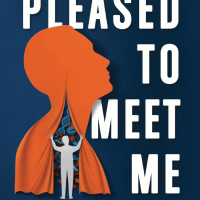Login
Subscribe404
Not Found
Is this what you were looking for?
tag posttraumatic stress disorder evolution

Study Probes Brain Activity in Survivors of Paris Terror Attacks
Jef Akst | May 1, 2020 | 5 min read
Those who had developed PTSD appear to be less able to suppress unwanted memories—traumatic or not—suggesting a role for the general ability to control memory recall in the disorder.

Scientists Engineer Dreams to Understand the Sleeping Brain
Catherine Offord | Dec 1, 2020 | 10+ min read
Technologies such as noninvasive brain stimulation and virtual reality gaming offer insights into how dreams arise and what functions they might serve.

Book Excerpt from Pleased to Meet Me
Bill Sullivan | Sep 1, 2019 | 5 min read
In Chapter 6, author Bill Sullivan explains how irrational fears can be passed down through transgenerational epigenetic inheritance.

What Do New Neurons in the Brains of Adults Actually Do?
Ashley Yeager | May 1, 2020 | 10+ min read
Adult neurogenesis, already appreciated for its role in learning and memory, also participates in mental health and possibly even attention, new research suggests.

Contributors
The Scientist | Jan 1, 2019 | 3 min read
Meet some of the people featured in the January 2019 issue of The Scientist.
Genetic Parasites and a Whole Lot More
Barry Palevitz | Oct 15, 2000 | 10+ min read
Photo: Ori Fragman, Hebrew University Hordeum spontaneum, the plant studied for BARE-1 retroelements. With genome sequences arriving almost as regularly as the morning paper, the public's attention is focused on genes--new genes to protect crops against pests; rogue genes that make bacteria resistant to antibiotics; faulty genes that, if fixed, could cure diseases such as muscular dystrophy. What many people don't realize is that genes account for only part of an organism's DNA, and in many c
Automated Colony Pickers Evolve
Helen Dell(hdell@the-scientist.com) | Jul 3, 2005 | 6 min read
Everyone knows that the first genome sequencing projects took years of work and represent the combined product of tens of thousands of individual fragments.
Epigenetics: Genome, Meet Your Environment
Leslie Pray | Jul 4, 2004 | 10+ min read
©Mehau Kulyk/Photo Researchers, IncToward the end of World War II, a German-imposed food embargo in western Holland – a densely populated area already suffering from scarce food supplies, ruined agricultural lands, and the onset of an unusually harsh winter – led to the death by starvation of some 30,000 people. Detailed birth records collected during that so-called Dutch Hunger Winter have provided scientists with useful data for analyzing the long-term health effects of prenat